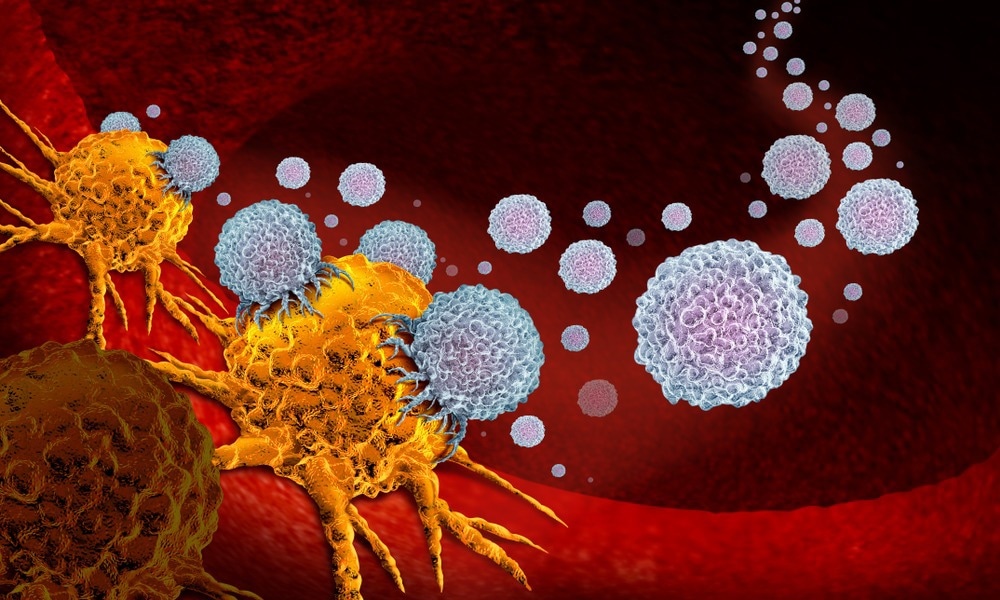Immunotherapy is an effective form of treatment for various types of cancer. However, its effect on pancreatic cancer is restricted and varies between men and women. Karolinska Institutet scientists have observed a possible explanation for this gender difference.

Image Credit: Lightspring/Shutterstock.com
The research, published in Cancer Research, shows the presence of an immune cell that impedes the body’s immune response in women with pancreatic cancer. The findings could pave the way for more sex-specific treatments.
More and more evidence is coming in that male and female hormones affect our immune system, but much remains to be done before sex can be included as a self-evident biological factor in medical research and therapy. Our results provide new perspectives that can have high impact on the treatment of cancer.”
Fei He, Study First Author, Department of Laboratory Medicine, Karolinska Institutet
Immunotherapy, which enhances the immune system to fight cancer cells, has made significant contributions to the treatment of various cancers, including lung, melanoma, kidney, and liver cancer. It is, however, far less efficient against pancreatic cancer, which remains one of the deadliest types of cancer, leaving patients with only four to six months to live after diagnosis.
Sex-biased differences in the immune response
Earlier studies reported that there are biological differences between the male and female immune systems that, among other things, influence how tumors grow and the body’s capacity to defend itself against them. A cooperative study led by Karolinska Institutet researchers in Sweden has now looked into what might be causing such sex inequities in the immune response to pancreatic cancer.
The study found a significant difference in tumor properties between men and women with pancreatic cancer. In women, there is a type of immune cell that safeguards the tumor and prevents T cells from infiltrating the tumor and attacking the cancer cells.
This sub-group of immune cells correlates with poor survival exclusively in female cancer patients. Our results show that the immune cells express a specific protein called FPR2 and can serve both as a sex-specific prognostic factor and a therapeutic target.”
Dhifaf Sarhan, Study Corresponding Author and Assistant Professor, Department of Laboratory Medicine, Karolinska Institutet
New target for immunotherapy in women
The findings could aid in the development of pancreatic cancer diagnostic tools and immunotherapy that take into account biological differences between men and women. The research used a variety of techniques, including single-cell RNA sequencing, proteomics, test tube and patient validation, and treatments of 3D pancreatic cancer models and mice.
The next step is to follow up our new immunotherapy target for women. We’re also performing extensive analyses to understand how immunological sex differences drive tumor development in different ways in male and female cancer patients with the goal to find and develop immunotherapy targets for each group.”
Dhifaf Sarhan, Study Corresponding Author and Assistant Professor, Department of Laboratory Medicine, Karolinska Institutet
Source:
Journal reference:
He, F., et al. (2023). FPR2 shapes an immune-excluded pancreatic tumor microenvironment and drives T-cell exhaustion in a sex-dependent manner. Cancer Research. doi.org/10.1158/0008-5472.can-22-2932.